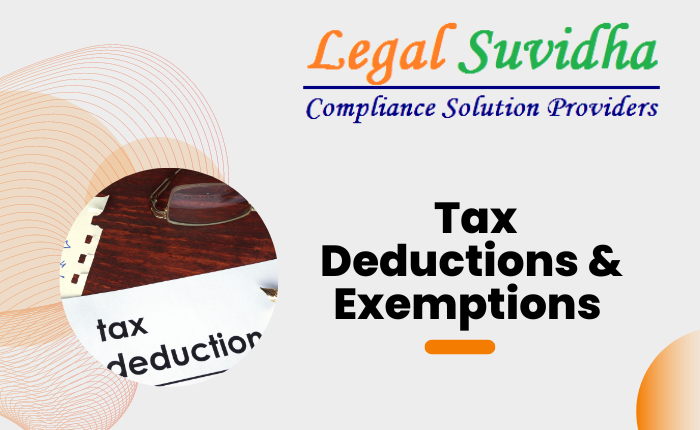Navigating the intricacies of tax deductions and exemptions is essential for optimizing your financial situation while ensuring you remain within the boundaries of tax regulations. This guide will provide you with valuable insights and practical advice to help you master the art of maximizing deductions and exemptions while staying compliant.
Understanding Tax Deductions and Exemptions:
Tax deductions and exemptions are tools designed to reduce your taxable income, ultimately leading to lower tax liabilities. However, it’s crucial to differentiate between the two:
1. Tax Deductions:
Tax deductions are expenses that you can subtract from your total income, thereby reducing the amount of income that is subject to taxation. Common tax deductions include mortgage interest, medical expenses, education-related expenses, and certain business expenses. To take advantage of deductions, you must itemize your deductions on your tax return using Schedule A (Form 1040).
2. Tax Exemptions:
Tax exemptions, also known as personal exemptions, are used to allow you to reduce your taxable income for yourself, your spouse, and your dependents. However, with recent tax law changes, as of 2018, personal exemptions have been suspended, and the focus has shifted to other tax benefits like the Child Tax Credit and the Additional Child Tax Credit.
Maximizing Tax Deductions:
1. Keep Detailed Records:
Maintain organized records of all expenses that could potentially be deducted. This includes receipts, invoices, and supporting documents for items like business expenses, medical costs, and charitable donations.
2. Understand Eligibility:
Familiarize yourself with the specific requirements for each deduction. Some deductions may have income limits or other restrictions that determine whether you qualify.
3. Consider Tax Credits:
While not deductions, tax credits can significantly reduce your tax liability. Research available tax credits, such as the Earned Income Tax Credit (EITC) or the Child and Dependent Care Credit, and ensure you meet the criteria to claim them.
Staying Tax Compliant:
1. Stay Informed About Tax Law Changes:
Tax laws can change from year to year. Stay updated with the latest tax regulations and modifications to deductions and exemptions that may affect your tax planning.
2. Consult a Tax Professional:
If your financial situation is complex, seeking advice from a qualified tax professional can help you navigate the tax code effectively. They can identify deductions and exemptions specific to your circumstances and ensure compliance.
3. Avoid Overstating Deductions:
Be cautious not to overstate your deductions or claim expenses that aren’t eligible. Exaggerating deductions can trigger audits and potential penalties.
4. File Accurate and Timely Returns:
Submit your tax returns accurately and before the deadline. Filing late or with errors can result in penalties and interest charges.
Conclusion:
Mastering tax deductions and exemptions requires a combination of understanding the rules, maintaining meticulous records, and staying compliant with tax regulations. By taking a proactive approach to your financial planning and seeking professional guidance when needed, you can make the most of available deductions and exemptions while minimizing your tax liability and avoiding unnecessary complications. Always stay informed about the latest tax changes to ensure you are making informed decisions for your financial future.
If You have any queries then connect with us at [email protected] or [email protected] & contact us & stay updated with our latest blogs & articles










